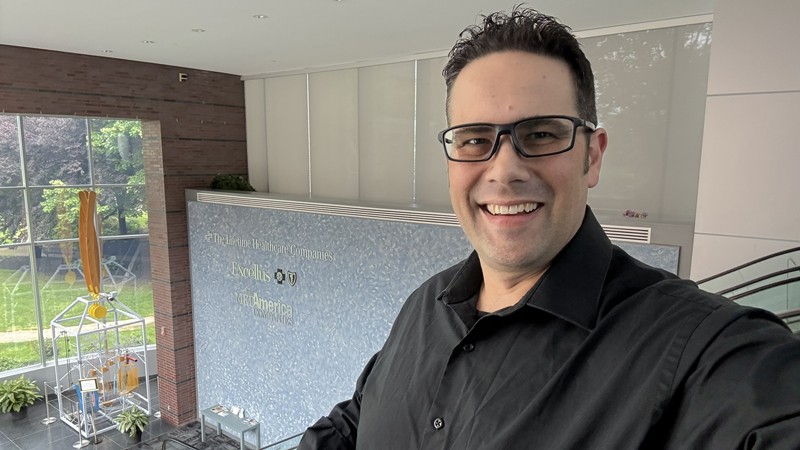Applied Statistics Master of Science Degree

Applied Statistics
Master of Science Degree
- RIT /
- Rochester Institute of Technology /
- Academics /
- Applied Statistics MS
In this master’s in applied statistics, you’ll learn statistical analysis and apply it to a variety of industries, including insurance, marketing, government, health care, and more.
$115K
Median First-Year Salary of RIT Graduates from this degree
34%
Employment growth rate
30%
Merit Scholarship
Overview for Applied Statistics MS
Why Study Applied Statistics at RIT
STEM-OPT Visa Eligible: The STEM Optional Practical Training (OPT) program allows full-time, on-campus international students on an F-1 student visa to stay and work in the U.S. for up to three years after graduation.
Online or On-campus: The MS in statistics is available as an online or on-campus degree program.
Data Driven: Learn how to use data mining, including machine learning tools and software like SAS and R, to drive insightful decision-making.
Tailored to your Interest: The applied statistics MS has a flexible degree plan to tailor the degree to your interests and career goals.
The master’s in applied statistics focuses on data mining, design of experiments, health care applications, and the application of statistics to imaging and industrial environments. You’ll integrate knowledge learned through engaging courses to solve more complex problems for a wide range of organizations, including industrial, marketing, education, insurance, credit, government, and health care.
RIT’s Statistics Master’s Degree: On-Campus or Online
RIT’s master’s in applied statistics is available to both full- and part-time students with courses offered both on-campus and online. In the applied statistics master’s you will learn:
- How to manage, analyze, and draw inferences from big data—adapting to a diverse audience using business communication skills to effectively convey your insights
- How to use data mining—with tools including machine learning, software like SAS and R—to drive insightful decision-making
- How to apply statistics to the design and analysis of experiment-based industrial studies and clinical trials
Applied Statistics curriculum: Packed with high-demand skills
- Software and Programming: Skills in Python and R are in 20% of job postings related to statistics.
- Data Science: Demand for skills in artificial intelligence has grown 190% in the last 2 years, and machine learning is in the top 15 skills employers want.
- Experimental Design: Crossover, adaptive, and equivalence designs are dominating 38% of this job market.
- Modeling Techniques: Statistical analysis skills like linear, multivariate, and logistic regression are in over ⅓ of all postings for jobs in this field.
Areas of Concentration
- Clinical Trails
- Data Mining/Machine Learning
- Industrial Statistics
- Informatics
Electives
Choose your elective courses with the guidance of an advisor. These courses are usually department courses but may include up to 6 credit hours from other departments (or may be transferred from other universities) that are consistent with your professional objectives.
Capstone Thesis/Project
Practice integrating your knowledge from courses to solve more complex problems by completing a capstone project. This project is taken near the end of your course of study.
Students, with advisor approval, may write a thesis as their capstone. A thesis maybe 3 or 6 credit hours. If a student writes a 6 credit hour thesis, they would be required to complete four elective courses instead of five.
Earn a Credential As You Study
Earn the advanced certificate in applied statistics and advance your career, all while working toward your master of science in applied statistics. These four courses may be fully applied toward the master’s degree.
-
Affordable Now. Valuable for Life.
Earn your master’s degree without the full price tag. With Master Up you can receive a 30% tuition scholarship for an RIT master’s degree.
-
Meet us on-campus on February 19
Learn about the programs that interest you. Hear from program faculty, speak with current graduate students, and ask the questions that will help you get one step closer to your career goals.
Careers and Experiential Learning
Typical Job Titles
| Sr. Business Intelligence Analyst | Epidemiology Research Analyst | Financial Analyst |
| Statistician | Market Research Analyst | Statistical Engineer |
| Loss Forecasting and Analytics | Crime Technology Analyst | Advanced Quality Engineer |
| Principal Six Sigma Engineer |
Cooperative Education and Internships
What makes an RIT science and math education exceptional? It’s the ability to complete science and math co-ops and gain real-world experience that sets you apart. Co-ops in the College of Science include cooperative education and internship experiences in industry and health care settings, as well as research in an academic, industry, or national lab. These are not only possible at RIT, but are passionately encouraged.
What makes an RIT education exceptional? It’s the ability to complete relevant, hands-on career experience. At the graduate level, and paired with an advanced degree, cooperative education and internships give you the unparalleled credentials that truly set you apart. Learn more about graduate co-op and how it provides you with the career experience employers look for in their next top hires.
Featured Work and Profiles
-
How Mentorship and Hands-On Learning Led to an Amazon Career
Applied Statistics alum Gabriela Olinto ’16 shows how RIT mentorship, hands-on learning, and career readiness opened doors, strengthened her skills, and helped shape her path to Amazon.
Read More about How Mentorship and Hands-On Learning Led to an Amazon Career -
Harnessing Applied Statistics to Shape Defense Analytics
RIT alum Kimberly Roye ’09 applies her Applied Statistics MS to safeguard critical defense data. From analytics to anomaly detection, she leads work that supports decision-making at the highest levels...
Read More about Harnessing Applied Statistics to Shape Defense Analytics -
Applied Statistics Powers Success in Healthcare Finance
RIT grad Paul Chwiecko ’02 uses applied statistics and data analytics to drive smarter decisions and improve outcomes in healthcare finance at Excellus BCBS.
Read More about Applied Statistics Powers Success in Healthcare Finance -
The Power of Being Data Literate in a Data-Driven World
The applied nature of the statistics programs at RIT helped Melissa Royo ’09/’10 get a sense for how real-world data behaves.
Read More about The Power of Being Data Literate in a Data-Driven World
Curriculum for 2025-2026 for Applied Statistics MS
Current Students: See Curriculum Requirements
Note for online students
The frequency of required and elective course offerings in the online program will vary, semester by semester, and will not always match the information presented here. Online students are advised to seek guidance from the listed program contact when developing their individual program course schedule.
Students are also interested in
Admissions and Financial Aid
This program is available on-campus or online.
On Campus
| Offered | Admit Term(s) | Application Deadline | STEM Designated |
|---|---|---|---|
| Full-time | Fall, Spring, or Summer | Rolling | Yes |
| Part-time | Fall, Spring, or Summer | Rolling | No |
Online
| Offered | Admit Term(s) | Application Deadline | STEM Designated |
|---|---|---|---|
| Part-time | Fall, Spring, or Summer | Rolling | No |
Full-time study is 9+ semester credit hours. Part-time study is 1‑8 semester credit hours. International students requiring a visa to study at the RIT Rochester campus must study full‑time.
Application Details
To be considered for admission to the Applied Statistics MS program, candidates must fulfill the following requirements:
- Complete an online graduate application.
- Submit copies of official transcript(s) (in English) of all previously completed undergraduate and graduate course work, including any transfer credit earned.
- Hold a baccalaureate degree (or US equivalent) from an accredited university or college. A minimum cumulative GPA of 3.0 (or equivalent) is recommended.
- Satisfy prerequisite requirements and/or complete bridge courses prior to starting program coursework.
- Submit a current resume or curriculum vitae.
- Submit a personal statement of educational objectives.
- Submit two letters of recommendation.
- Entrance exam requirements: None
- Have college-level credit or practical experience in a programming language.
- Submit English language test scores (TOEFL, IELTS, PTE Academic, etc.), if required. Details are below.
English Language Test Scores
International applicants whose native language is not English must submit one of the following official English language test scores. Some international applicants may be considered for an English test requirement waiver.
Duolingo (DET): 120
IELTS: 6.5
LanguageCert Academic: 70
PTE Academic: 56
TOEFL: 79/4.5
International students below the minimum requirement may be considered for conditional admission. Deaf and hard-of-hearing test takers with significant hearing loss do not need to take the listening and speaking sections for the TOEFL and IELTS. Each program requires balanced sub-scores when determining an applicant’s need for additional English language courses.
How to Apply Start or Manage Your Application
Cost and Financial Aid
An RIT graduate degree is an investment with lifelong returns. Graduate tuition varies by degree, the number of credits taken per semester, and delivery method. View the general cost of attendance or estimate the cost of your graduate degree.
A combination of sources can help fund your graduate degree. Learn how to fund your degree
Additional Information
Prerequisites
- Applicant must have college-level credit or practical experience in mathematics (two-course sequence in calculus) and one course in applied statistics.
- Applicant must have college-level credit or practical experience in a programming language.
Online Degree Information
The online Applied Statistics MS program can only be completed part-time, taking one or two courses per term. The average time to completion is two and a half to three years. Courses in the online program can all be completed asynchronously. They are designed to accommodate working professionals and students in various time zones to provide the greatest amount of flexibility. Program electives are slightly more limited than courses available in the on-campus program. Students typically spend 10-12 hours per week per class, depending on the content and their background knowledge. The online program does not have any in-person requirements. Your academic advisor will work with you to select courses that meet your degree requirements and your schedule. Both the online and on-campus program culminates with a final capstone project. For specific details about the delivery format and learning experience, contact the Program Contact listed on this page. RIT does not offer student visas for online study.
Online Tuition Eligibility
The online Applied Statistics MS is a designated online degree program that is billed at a 43% discount from our on-campus rate. View the current online tuition rate.
Online Study Restrictions for Some International Students
Certain countries are subject to comprehensive embargoes under US Export Controls, which prohibit virtually ALL exports, imports, and other transactions without a license or other US Government authorization. Learners from the Crimea region of the Ukraine, Cuba, Iran, North Korea, and Syria may not register for RIT online courses. Nor may individuals on the United States Treasury Department’s list of Specially Designated Nationals or the United States Commerce Department’s table of Deny Orders. By registering for RIT online courses, you represent and warrant that you are not located in, under the control of, or a national or resident of any such country or on any such list.
Accreditation
Research
The College of Science consistently receives research grant awards from organizations that include the National Science Foundation, National Institutes of Health, and NASA, which provide you with unique opportunities to conduct cutting-edge research with our faculty members.
Faculty in the School of Mathematics and Statistics conducts research on a broad variety of topics including:
- applied inverse problems and optimization
- applied statistics and data analytics
- biomedical mathematics
- discrete mathematics
- dynamical systems and fluid dynamics
- geometry, relativity, and gravitation
- mathematics of earth and environment systems
- multi-messenger and multi-wavelength astrophysics
Learn more by exploring the school’s mathematics research areas.
Related News
-
April 23, 2021

College of Science 2020-2021 Distinguished Alumnus: Rob Hochstetler
The Distinguished Alumni Awards are presented annually by each of RIT’s nine colleges and the School of Individualized Study to alumni who have performed at the highest levels of their profession or who have contributed to the advancement and leadership of civic, philanthropic, or service organizations.
-
June 23, 2020

RIT researchers create easy-to-use math-aware search interface
Researchers at RIT have developed MathDeck, an online search interface that allows anyone to easily create, edit and lookup sophisticated math formulas on the computer. Created by an interdisciplinary team of more than a dozen faculty and students, MathDeck aims to make math notation interactive and easily shareable, and it's is free and open to the public.
-
April 12, 2018

Playful teaching style earns assistant professor two awards
Nathaniel Barlow is the winner of RIT’s Richard and Virginia Eisenhart Provost’s Award for Excellence in Teaching and the Innovative Teaching with Technology Award.
Contact
- Lindsay Lewis
- Senior Assistant Director
- Office of Graduate Admissions
- Enrollment Management
- 585‑475‑5532
- lslges@rit.edu
- Teresa Gibson
- Director, Applied Statistics MS Program
- School of Mathematics and Statistics
- College of Science
- 585‑475‑5387
- tbgsma@rit.edu
School of Mathematics and Statistics



















